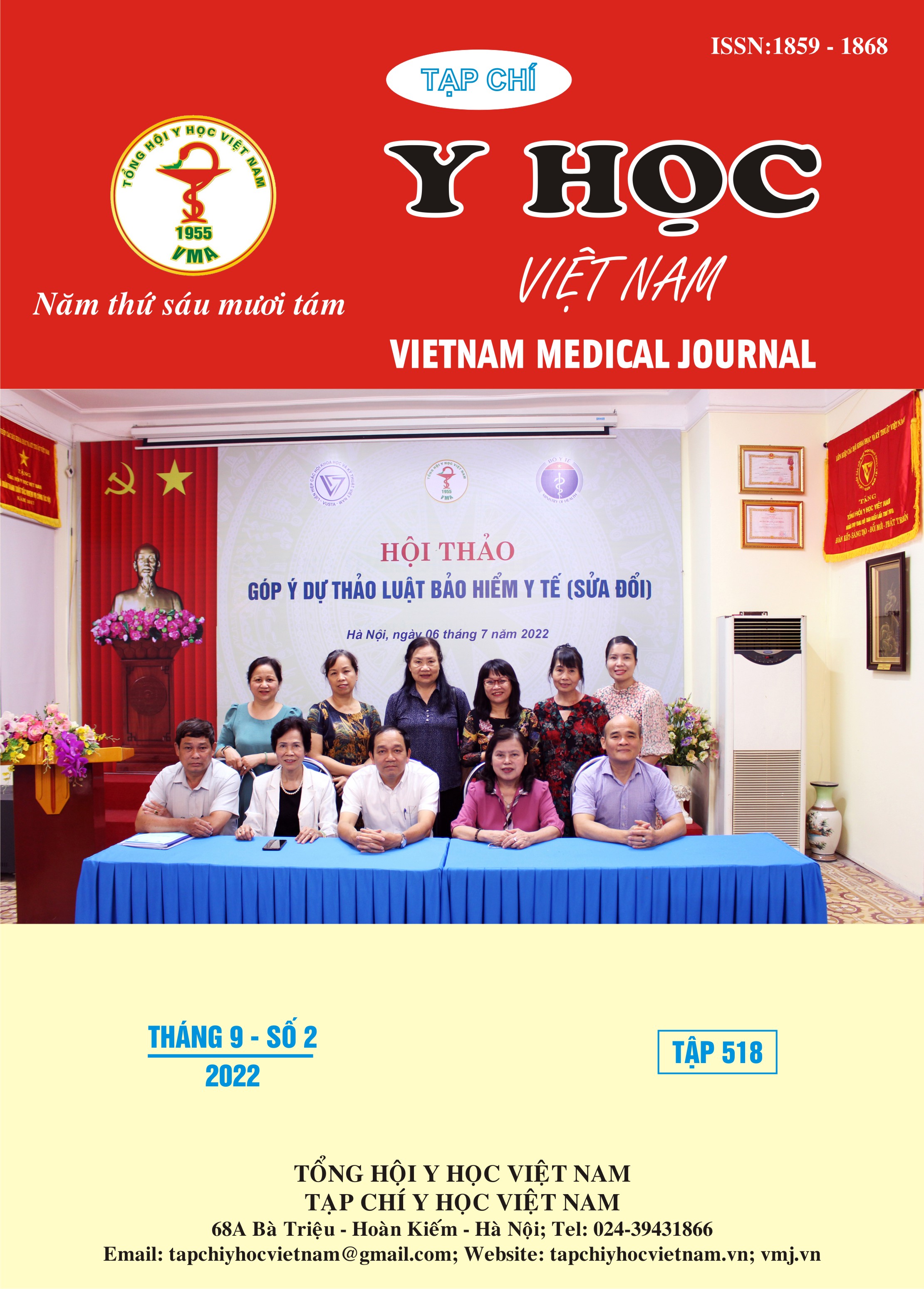EVALUATE QUALITY OF LIFE OF PATIENTS AFTER LOW ANTERIOR – RESECTION AND ABDOMINOPERINEAL RESECTION FOR RECTAL CANCER
Main Article Content
Abstract
Objectives: Evaluate quality of life of patients after total mesorectal excision and abdominoperineal resection for rectal cancer. Method: A prospective descriptive study with longitudinal follow-up on 210 patients undergoing surgery for rectal cancer at 108 Central Military Hospital from September 2019 to May 2021. Evaluation of patients' quality of life using the European Cancer Foundation QLQ-30 and CR29 questionnaires. Result: There were 176 patients (83.8%) who underwent low anterior – resection (LAR) and 34 patients (16.2%) had Miles surgery. There were no significant differences in functional or symptom scores according to the QLQ-C30 criteria between the Miles and LAR surgery groups. Judging by the scale of QLQ-CR30 and QLQ-CR29 for patient groups, univariate analysis revealed differences between the two groups on four criteria. Postoperative Miles patients had higher scores for urinary incontinence (p = 0.0001), abdominal pain (p = 0.0001), perineal pain, and shame (p = 0.0001) compared with with patients after LAR surgery. Conclusion: Quality of life of patients after Miles surgery for rectal cancer is as low as or worse than quality of life after LAR in some cases. This fact should be considered while dealing with low rectal cancers.
Article Details
References
2. Conroy T, Bleiberg H, Glimelius B. (2003) Quality of life in patients with advanced colorectal cancer. What has been learnt? Eur J Cancer. 2003;39:287–294.
3. Aaronson NK, Ahmedzai S, Bergman B, et al (1993). The European Organisation for Research and TreaLARnt of Cancer QLQ-C30: a quality-of-life instrument for use in international clinical trials in oncology. J Natl Cancer Inst. 1993;85:365–376.
4. Whistance RN, Conroy T, Chie W. (2009) Clinical and psychometric validation of the EORTC QLQ-CR29 questionnaire module to assess health-related quality of life in patients with colorectal cancer. Eur J Cancer. 45:3017–3026
5. Nord E. (1989) The significance of contextual factors in valuing health states. Health Policy. 13:189–198.
6. Schwartz CE, Sprangers MA. (1999) Methodological approaches for assessing response shift in longitudinal health-related quality-of-life research integrating response shift into health-related quality of life research: a theoretical model. Soc Sci Med. 48:1531–1548.
7. Cornish JA, et al. (2007). A meta-analysis of quality of life for abdominoperineal excision of rectum versus anterior resection for rectal cancer. Ann Surg Oncol. 2007;14:2056–2068.
8. Camilleri-Brennan J, Steele RJ. (2002). Objective assessment of morbidity and quality of life after surgery for low rectal cancer. Color Dis. 4:61–66.


